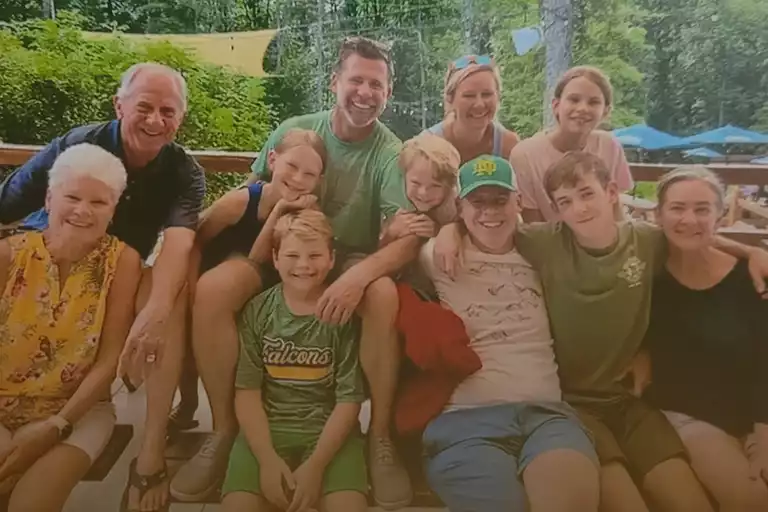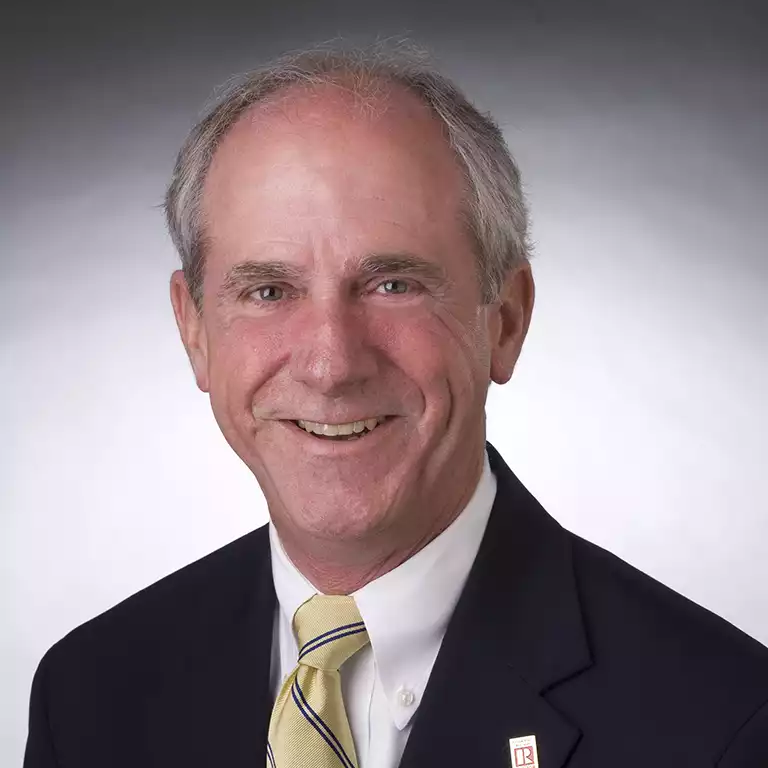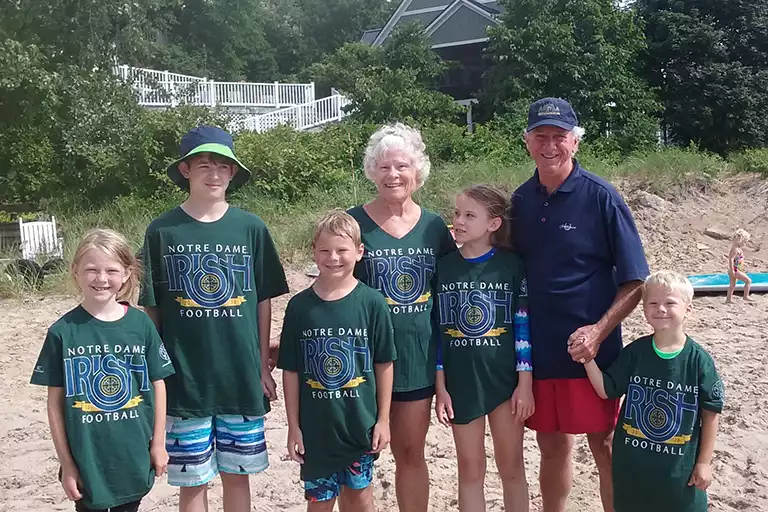By End Lung Cancer Now
October 16, 2024
How lung cancer screening saved one Hoosier’s life

The decision to get a screening changed Bob Lindgren's life. It granted him the chance to cherish more moments with his grandkids, savor more birthdays, attend more family events, and experience countless other special occasions in his everyday life.
Lindgren, a commercial real estate broker, is among the almost 235,000 people diagnosed with lung cancer each year, and he is one of the 26% of people whose cancer was diagnosed early when the survival rate is 63%, making life-saving treatment possible. Unfortunately, 44% of cases are not caught until a late stage when the survival rate is less than 10%.
Lindgren’s story of beating cancer is one example why End Lung Cancer Now exists at IU Simon Comprehensive Cancer Center: Because we know the more Hoosiers can get screened for lung cancer, the more lives will be saved. End Lung Cancer Now knows the recipe to end lung cancer in Indiana, and our goal is to inform and empower you with tools to help us save Hoosiers lives—including yours.
Read more inspiring stories
Sign Up For Our NewsletterWhile people who have never smoked can also get lung cancer, more than 84% of people who get lung cancer are or were tobacco users. A longtime smoker, Lindgren encourages everyone to get screened.
Low-dose CT scans (lung cancer screenings) are a simple way to reduce the risk of dying from lung cancer, but only about 5% of eligible Hoosiers get one. Those who are eligible are people age 50 to 80 with a 20 pack-year smoking history who currently smoke or quit within the last 15 years.
Lindgren wasn’t a stranger to the idea of lung cancer screening. He knew he fell into the recommended group for annual screening, and he considers himself “lucky” that he took his doctor up on the chance to get screened.
“Life is good now,” Lindgren said of his life post-treatment. “I’m looking forward to enjoying each day as it is allowed, and with passage of time, you recognize a little bit better how precious that opportunity for tomorrow is, and particularly a tomorrow in good health.”
Making the decision to get screened

When a colleague told Lindgren he’d gone for a screening that had come back cancer-free, Lindgren’s attitude began to shift. The next time his family doctor asked if he would like to be screened, Lindgren said yes, even though he didn’t have any lung cancer symptoms.
“The sooner you say ‘yes’ to screening the better,” he said. “It just means you can find out whether you have issues or not, which can help you make a more informed decision about whether to continue to smoke.”
When Lindgren was screened, the low-dose CT scan detected a 1.9-centimeter mass in the upper lobe of his right lung that seemed likely to be cancer.
“I guess I wasn’t surprised,” he recalled. “It was more like ‘Gee, I guess I didn’t dodge that bullet I hoped to dodge. Now let’s deal with what is and take care of it.’”
Successful treatment and recovery
A biopsy confirmed that Lindgren had squamous cell carcinoma, the second most common type of lung cancer and the one most strongly associated with smoking. After several tests to confirm he was a good candidate, his doctor recommended surgery.
In October of 2023, surgeons successfully removed Lindgren’s tumor. His wife and sons, whom Lindgren called “really great cheerleaders,” were by his side throughout the journey. While he was recovering from surgery, his grandchildren presented him with a pillow decorated with good wishes that he kept close by his side.
Although chemotherapy and radiation were not recommended as part of Lindgren’s treatment, he sought out advanced post-surgical care.
“When you’ve lost the big bet, you start looking for both the belt and the suspenders to hold your pants up,” Lindgren recalled, explaining why he decided to seek additional care after surgery.
His oncologist connected him with Nasser Hanna, MD, a thoracic oncologist and leader of End Lung Cancer Now. Today, Lindgren is enrolled in a clinical trial at IU Simon Comprehensive Cancer Center to help learn more about the best treatments for cancers like his.

Giving back through research
After an initial conversation with Dr. Hanna, Lindgren enrolled in a randomized trial that is examining whether the targeted immunotherapy medication pembrolizumab improves cancer-free survival in patients with lung cancers like Lindgren’s.
Lindgren was randomly assigned to the “control group”— participants who get standard therapy but do not receive the study drug, acting as a baseline for the trial. “I’m more than willing to do it,” he said. “I was fortunate, and this may help other people down the road, assuming it proves to be effective.”
Lindgren noted that he receives benefits as part of the control group, including enhanced testing in quarterly visits with the study team. These CT scans keep a close eye on his lungs and can act as an early warning sign should his cancer return.
“I absolutely recommend it,” Lindgren said of his trial experience. “You give up a little bit of time, but you get wonderful benefits in return, and you know you’re assisting in moving the cause forward.”
National Lung Cancer Screening Day:
Helping more Hoosiers get lifesaving screenings
It can be difficult to make a weekday appointment to get screened for lung cancer when you can’t get time off work or find childcare. Opening on a Saturday can help more people access screenings that could save their lives.
End Lung Cancer Now has partnered with organizations locally and around the country—including the IU Simon Comprehensive Cancer Center's Office of Community Outreach and Engagement, the Indiana Cancer Consortium, and the local chapter of the American Cancer Society—to invite screening locations to open their doors on Saturday, Nov. 9 for National Lung Cancer Screening Day.
A precious opportunity for good health
Lung cancer screening may have saved Lindgren’s life, and he hopes other Hoosiers take advantage of the opportunity, too.
“I was lucky, and I’m without 20% of my lung capacity,” he said. “I’m lucky the tumor hadn’t grown to the size where it wouldn’t be treatable with surgery. With the passage of time, you recognize a bit better how precious the opportunity for tomorrow is, especially a tomorrow in good health.”




